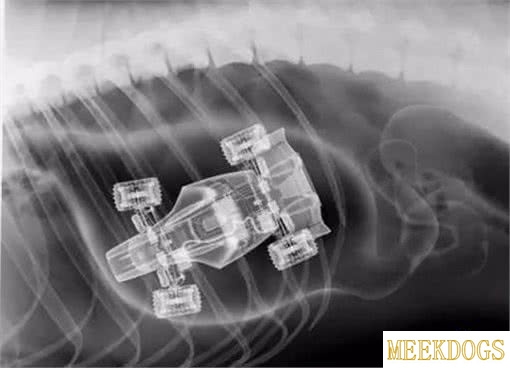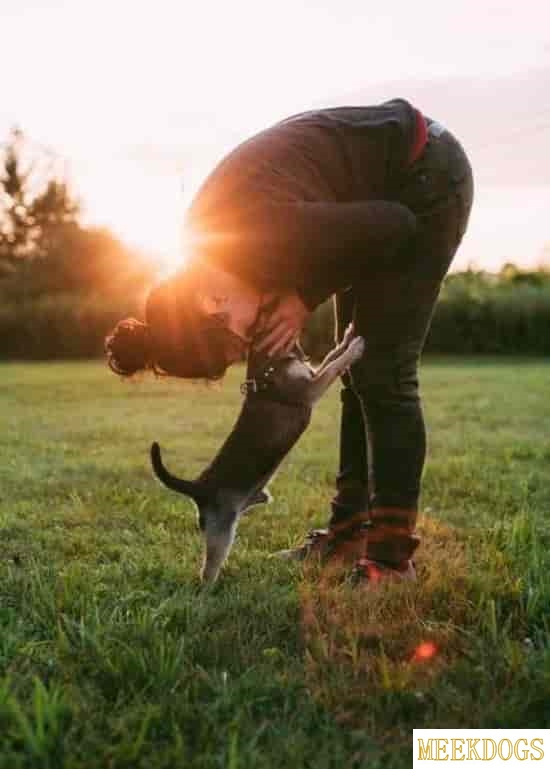Is it normal for a dog not to pee for 12 hours
Is it normal for a dog not to pee for 12 hours
It’s not typical for a dog to hold it for 12 hours, but it’s not necessarily a cause for concern if your dog doesn’t urinate for a short period. Dogs can control their bladders for a few hours, but it’s important to monitor your pet and ensure they have regular opportunities to urinate. If your dog continues to avoid urination or exhibits other concerning behaviors, consult a veterinarian.
When should I worry about my dog not peeing?
You should worry about your dog not peeing if it’s consistently avoiding urination, as this could be a sign of a health issue. Consult a veterinarian for advice.

How long is too long for a dog to go without peeing?
Typically, a dog should not go more than 6-8 hours without urinating. this can vary depending on the dog’s age, size, and health. If your dog seems to be struggling to urinate, consult a veterinarian immediately.
Can dogs go 12 hours without peeing overnight?
Yes, dogs can hold their urine for 12 hours overnight, but it’s not recommended as it can lead to health issues. Dogs should be taken out for regular bathroom breaks during the night.
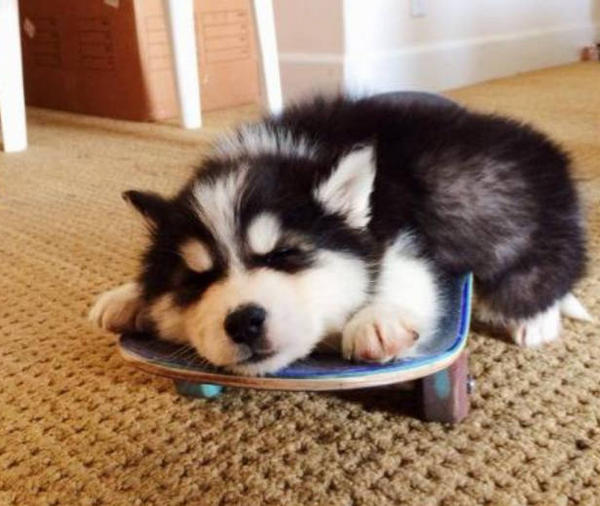
Why hasnt my dog peed all day?
Your dog may not have urinated all day due to a variety of reasons, such as being too busy playing, being sick, or having a small bladder capacity. If this continues, consider taking your dog to the veterinarian for a checkup.
What if my dog hasn’t peed in 24 hours?
If your dog hasn’t urinated in 24 hours, it’s important to monitor its behavior and consult a veterinarian. This could be a sign of a urinary tract issue or dehydration, so providing plenty of water and noticing any discomfort are crucial.

Can my dog go 10 hours without peeing?
Yes, your dog can go 10 hours without peeing, but it’s not recommended as dogs need to urinate regularly to maintain their health.
What happens if my dog holds his pee too long?
If your dog holds his pee for too long, it can lead to urinary tract infections or kidney damage due to the buildup of bacteria and waste. It’s important to monitor your dog’s urination habits and take him for regular walks to ensure he has regular bathroom breaks.

How do you know when a dog is dehydrated?
A dehydrated dog may exhibit symptoms like dry mouth, lethargy, and dark urine. To ensure your dog’s hydration, monitor its water intake and provide fresh water regularly.
How do I know if my dog has a UTI?
To determine if your dog has a urinary tract infection (UTI), look for symptoms such as frequent urination, difficulty urinating, and blood in the urine. Consult your veterinarian for a proper diagnosis and treatment.

How many times should dog pee a day?
A dog should urinate at least four to six times a day, depending on its age, size, and water intake.
Is it normal for a dog to pee once a day?
Yes, it’s normal for a dog to urinate once a day, as long as they have regular access to outside relief areas. dogs may also urinate more frequently if they’re drinking a lot of water or if they’re excited or anxious.

How Long Can dogs hold their pee and poop?
Typically, dogs can hold their urine for about 4-6 hours and their feces for about 1-2 days. this can vary depending on the dog’s size, breed, and health. It’s important to provide regular opportunities for dogs to go potty and avoid over-restricting their bathroom breaks.
How long after drinking water do dogs pee?
Typically, dogs will urinate within 15 to 30 minutes after drinking water, depending on factors such as their hydration level and the volume of water consumed.

How Long Can dogs go without water?
dogs can survive without water for a limited time, usually about three days. it is crucial to keep them hydrated to maintain their health and well-being.
Is it normal for a dog to only pee twice a day?
Yes, it’s normal for a dog to urinate twice a day, as long as they have regular access to water and can freely exercise. Dogs’ urination habits can vary depending on their breed, age, and health. if you notice any changes in your dog’s urination frequency or any other unusual symptoms, it’s best to consult a veterinarian.

Do dehydrated dogs pee?
Yes, dehydrated dogs can still pee, although less frequently and in smaller amounts. Dehydration can lead to a concentrated urine, which can be harmful to a dog’s kidneys. It is important to keep dogs well-hydrated to maintain their health.
How can I hydrate my dog fast?
1. Offer plenty of water.
2. Encourage your dog to drink by placing the water bowl in an accessible location.
3. Use a water bottle for easy hydration on the go.
4. Offer wet food or add water to dry food to increase fluid intake.
5. Consider using an interactive water toy to make drinking more enjoyable for your dog.
6. Monitor your dog’s hydration and adjust fluid intake as needed.
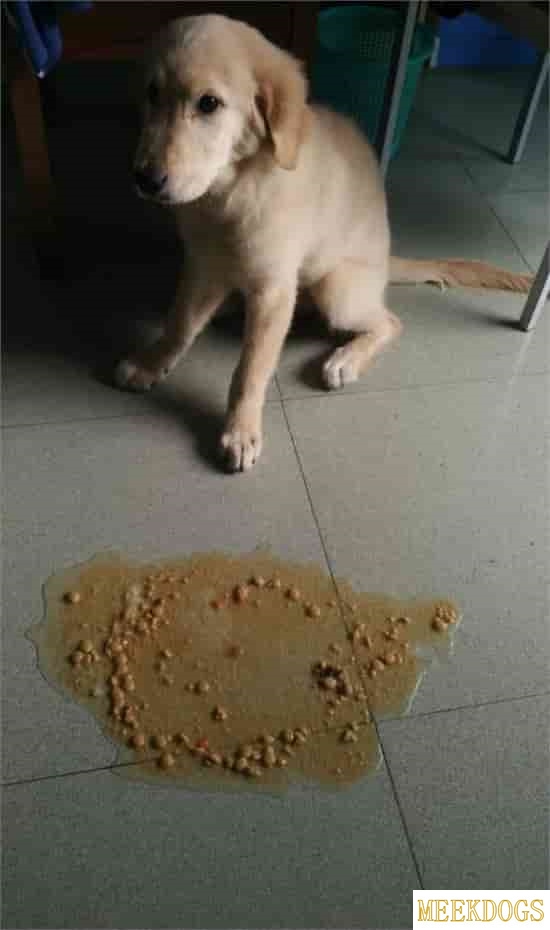
What is the best thing to give a dog for dehydration?
1. Hydration is crucial for dogs, so always ensure they have access to clean water.
2. In case of dehydration, offer your dog water or a rehydration solution (e.g., Pedialyte) immediately.
3. Monitor your dog’s condition and consult a veterinarian if necessary.
What are the signs of kidney infection in dogs?
Signs of kidney infection in dogs include frequent urination, increased thirst, and possible blood in the urine. Other symptoms may include lethargy, loss of appetite, and abdominal pain. If you notice any of these signs, consult a veterinarian immediately.

Can you test a dog for UTI at home?
Yes, you can test your dog for UTI at home by monitoring their urine output, looking for signs of discomfort, and checking for blood or pus in the urine. it’s important to consult a veterinarian for a proper diagnosis and treatment plan.
Will dog UTI resolve on its own?
1. It’s possible for a dog’s UTI to resolve on its own, but it’s not guaranteed.
2. The chances of a UTI resolving naturally depend on factors like the severity and cause of the infection.
3. If your dog is showing signs of a UTI, it’s important to consult a veterinarian for a proper diagnosis and treatment plan.
4. In some cases, a veterinarian may recommend waiting and monitoring the situation, while in others, they may recommend prompt treatment to prevent complications.
5. It’s crucial to follow your veterinarian’s advice to ensure your dog’s health and well-being.

How Long Can dogs hold their pee by age?
The ability of dogs to hold their pee depends on various factors such as breed, size, and overall health. Generally, adult dogs can hold their urine for about 4-6 hours, but this may vary. Puppies may need to urinate more frequently due to their small bladder capacity. It’s important to provide dogs with regular opportunities to go outside or to a designated bathroom area.
What does kidney failure in dogs look like?
Kidney failure in dogs can manifest as increased thirst, frequent urination, weight loss, and poor appetite. Other symptoms include vomiting, diarrhea, and lethargy. Dogs with kidney failure may also experience muscle wasting and develop a harsh, dry coat. Prompt veterinary care is crucial to managing this condition and improving a dog’s quality of life.

How often should I take my dog out to go to the bathroom?
Regularly, at least three to four times a day, depending on your dog’s age, size, and lifestyle.
How much water should a dog drink a day?
1. A general guideline is to provide your dog with 1 oz of water per pound of body weight, per day.
2. this amount may vary depending on factors such as activity level, age, and health.
3. Be sure to offer your dog fresh, clean water at all times.
4. Monitor your dog’s water intake and make adjustments as needed.
5. Always consult your veterinarian for specific advice on your dog’s water needs.

Can dogs go all night without water?
1. Yes, dogs can go all night without water, but it’s not recommended.
2. Dogs can survive for a short period without water, but it’s not healthy for them.
3. Dehydration can lead to serious health issues, so it’s important to provide water regularly.
4. If you’re away overnight, consider setting up a water station with a gravity-fed water bowl or a pet fountain.
5. Alternatively, you can ask a friend or neighbor to check on your dog and refill their water.
How do you treat a dehydrated dog at home?
To treat a dehydrated dog at home, immediately provide plenty of water, encourage fluid intake, and monitor their condition. If necessary, consult a veterinarian for further assistance.

Can a dog go without water for 8 hours?
1. Yes, a dog can go without water for 8 hours, but it’s not recommended.
2. Dogs can survive for a short period without water, but it’s crucial to provide water as soon as possible.
3. Dehydration can lead to health issues, so it’s important to keep water available for your dog.
4. If your dog goes without water for an extended period, consult a veterinarian for advice.
How can I tell if my dog is dying?
Signs of a dying dog may include weakness, loss of appetite, difficulty breathing, and confusion. Visit a veterinarian for a proper evaluation.
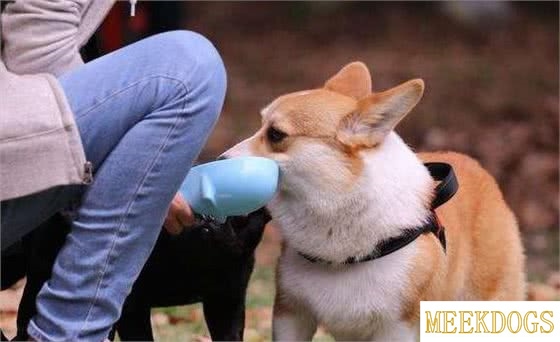
Is Gatorade good for dogs?
Yes, Gatorade is safe for dogs in small amounts, but it’s not necessary for their daily hydration. It contains electrolytes and can be used as an occasional treat, but it’s important to consult a veterinarian before offering it to your furry friend.
Can I syringe water to my dog?
Yes, you can syringe water to your dog, but make sure to use a clean syringe and sterilize it if necessary. Always be gentle and cautious when administering water this way, as it can be uncomfortable for your dog if done too forcefully.
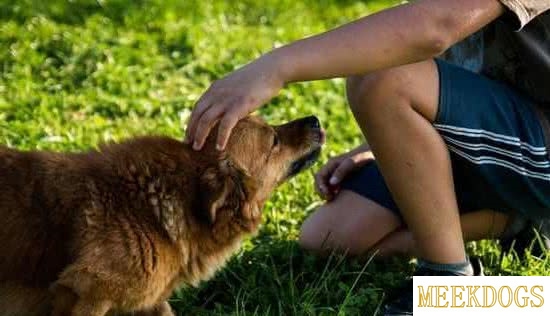
How can you tell if a pet has reached an unsafe level of fatigue or dehydration?
1. Monitor your pet’s energy levels and activity.
2. Check for excessive panting or drooling.
3. Look for a loss of appetite or increased thirst.
4. Assess your pet’s gait and coordination.
5. Notice any weakness, confusion, or disorientation.
6. Inspect your pet’s skin for elasticity.
7. Monitor your pet’s temperature.
8. Keep an eye on their respiratory rate.
9. Ensure access to clean water at all times.
10. Consult a veterinarian if you’re concerned.
What Can dogs drink besides water?
Dogs can also drink milk, but it’s best to avoid giving them too much as it may cause digestive issues. Additionally, you can give them diluted fruit juices or broth, but make sure to avoid anything with high sugar or salt content.

How long does it take to rehydrate a dog?
It typically takes around 6-12 hours to rehydrate a dog, depending on factors like the dog’s size, health, and level of dehydration. Smaller dogs may recover more quickly, while larger dogs or those with more severe dehydration may require longer periods of rehydration. It’s important to consult a veterinarian for proper guidance and care.
Does chicken broth hydrate dogs?
Yes, chicken broth can hydrate dogs. It contains water and electrolytes that help replenish fluids lost due to diarrhea, vomiting, or excessive panting. it’s important to note that chicken broth alone may not provide all the nutrients a dog needs. It’s best to consult a veterinarian for proper hydration solutions and dietary recommendations.

What are the first signs of kidney problems?
1. Increased thirst
2. Increased urination
3. Loss of appetite
4. Weight loss
5. Vomiting
6. Lack of energy
7. Poor coat quality
8. Bone and joint pain
9. Swelling around the eyes
10. Diarrhea
What is the most common cause of urinary tract infections in dogs?
Bladder stones, bacterial infections, and poor hygiene are the main causes of urinary tract infections in dogs.

What color is urine when your kidneys are failing?
The color of urine when kidneys are failing can vary, typically darker than normal, and may be foamy or have a strong odor. It’s important to consult a doctor for accurate diagnosis.
What home remedy can I give my dog for urinary tract infection?
1. Cranberry juice: Helps to prevent UTIs by acidifying the urine and making it difficult for bacteria to thrive.
2. Apple cider vinegar: Acts as a natural antibiotic and helps to alkalinize the urine, which can help kill bacteria.
3. Water: Ensure your dog has access to plenty of water to help dilute the urine and prevent bacteria growth.
4. Herbal remedies: Goldenrod, uva-ursi, and marshmallow root can help to support the urinary system and fight infection.
5. Probiotics: Supplements containing probiotics can help to maintain a healthy balance of bacteria in your dog’s gut and urinary tract.
Always consult a veterinarian for proper diagnosis and treatment, as home remedies should not replace professional medical advice.

How much does a dog UTI test cost?
The cost of a dog UTI test varies depending on the veterinarian clinic and the specific tests performed. Generally, the price range can be between $50 and $200. Please consult your veterinarian for an accurate estimate.
What can I give my dog for urinary tract infection?
For a dog with a urinary tract infection, you can consult a veterinarian for proper medication. Common treatments include antibiotics, anti-inflammatory drugs, and supportive care. Always follow your veterinarian’s recommendations for the best outcome.
